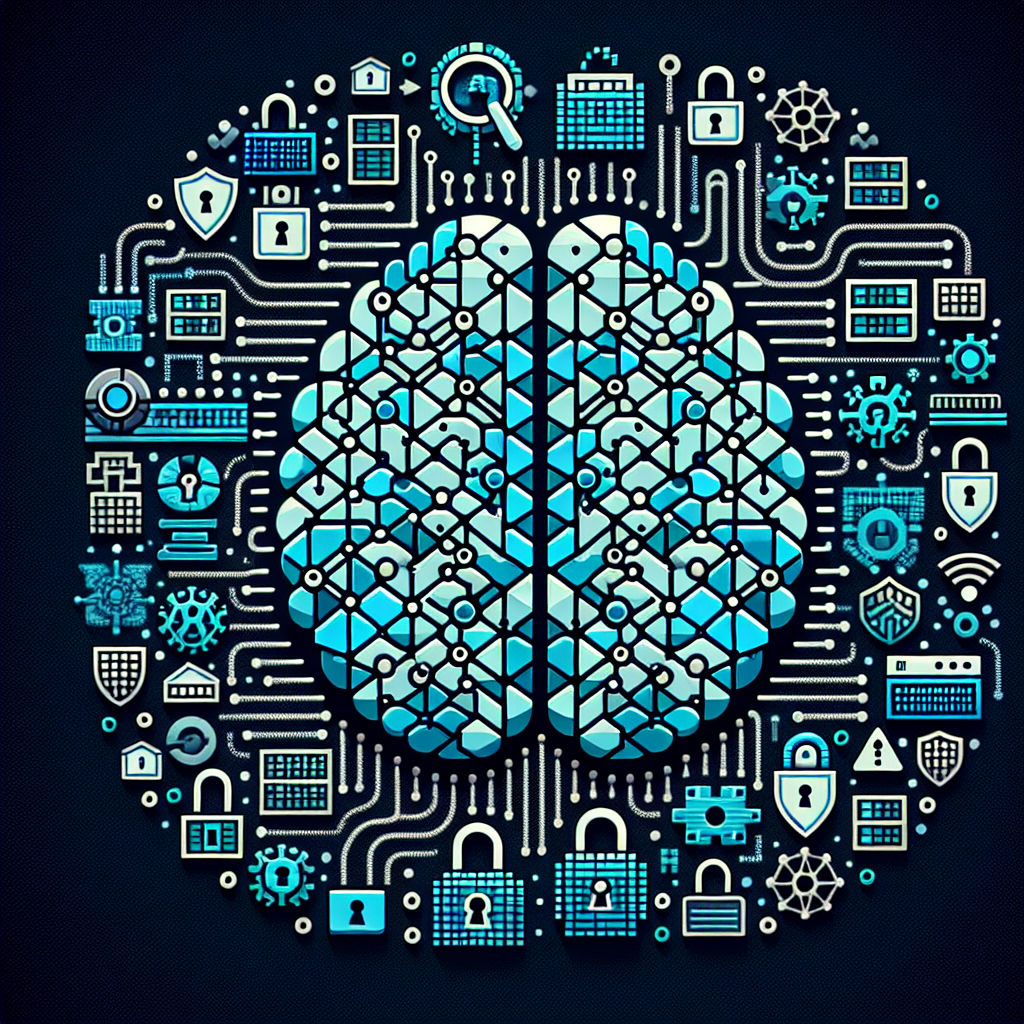The promise of AI in revolutionizing cybersecurity practices
In recent years, the field of cybersecurity has become increasingly important as more and more of our daily activities are conducted online. With the rise of cyber threats and attacks, organizations are constantly looking for new and innovative ways to protect their data and systems from being compromised. One technology that has shown great promise in this regard is artificial intelligence (AI).
AI has the potential to revolutionize cybersecurity practices by providing a more proactive and intelligent approach to detecting and responding to cyber threats. By leveraging machine learning algorithms, AI systems can analyze vast amounts of data in real-time to identify patterns and anomalies that may indicate a security breach. This allows organizations to detect and respond to threats more quickly and effectively than traditional methods.
One of the key benefits of using AI in cybersecurity is its ability to automate routine tasks and processes, freeing up human analysts to focus on more strategic and complex security challenges. AI-powered systems can continuously monitor network traffic, analyze log data, and detect suspicious activity without human intervention. This not only improves the efficiency of cybersecurity operations but also reduces the likelihood of human error.
Furthermore, AI can help organizations improve their incident response capabilities by providing real-time alerts and recommendations for dealing with security incidents. By analyzing historical data and learning from past incidents, AI systems can identify the root causes of security breaches and recommend the most effective remediation strategies. This allows organizations to respond to threats more quickly and minimize the impact of cyber attacks.
Another area where AI can make a significant impact is in threat intelligence and vulnerability management. AI-powered systems can analyze threat intelligence feeds, security advisories, and vulnerability databases to identify potential security risks and prioritize them based on their likelihood and impact. This helps organizations focus their resources on addressing the most critical vulnerabilities and reducing their overall risk exposure.
Despite the promises of AI in revolutionizing cybersecurity practices, there are also challenges and limitations that need to be addressed. One of the main concerns is the potential for AI systems to be manipulated or deceived by sophisticated cyber attackers. Adversaries can use techniques such as adversarial machine learning to trick AI algorithms into making incorrect decisions or overlooking certain types of threats. This highlights the importance of continuously monitoring and validating the performance of AI systems to ensure their effectiveness and reliability.
Another challenge is the shortage of skilled cybersecurity professionals with the necessary expertise to develop, deploy, and manage AI-powered systems. As AI technologies continue to evolve and become more complex, organizations will need to invest in training and upskilling their workforce to effectively leverage these technologies in their cybersecurity operations. Additionally, organizations will need to consider the ethical implications of using AI in cybersecurity, such as ensuring transparency and accountability in decision-making processes.
Overall, the promise of AI in revolutionizing cybersecurity practices is significant. By leveraging the power of machine learning and automation, organizations can enhance their security posture, improve their incident response capabilities, and better protect their data and systems from cyber threats. However, it is important for organizations to approach AI adoption in cybersecurity with caution and to address the challenges and limitations associated with these technologies.
FAQs
Q: How does AI help in detecting and responding to cyber threats?
A: AI-powered systems can analyze vast amounts of data in real-time to identify patterns and anomalies that may indicate a security breach. This allows organizations to detect and respond to threats more quickly and effectively than traditional methods.
Q: What are the benefits of using AI in cybersecurity?
A: Some of the key benefits of using AI in cybersecurity include automation of routine tasks, improved incident response capabilities, and enhanced threat intelligence and vulnerability management.
Q: What are the challenges of using AI in cybersecurity?
A: Some of the challenges of using AI in cybersecurity include the potential for AI systems to be manipulated by cyber attackers, the shortage of skilled cybersecurity professionals, and ethical considerations related to transparency and accountability.
Q: How can organizations address the challenges of using AI in cybersecurity?
A: Organizations can address the challenges of using AI in cybersecurity by continuously monitoring and validating the performance of AI systems, investing in training and upskilling their workforce, and ensuring transparency and accountability in decision-making processes.

